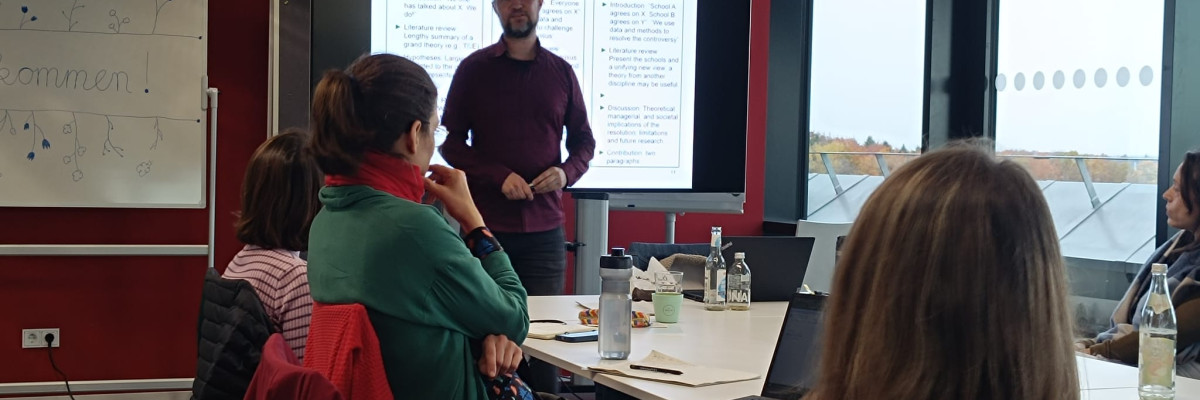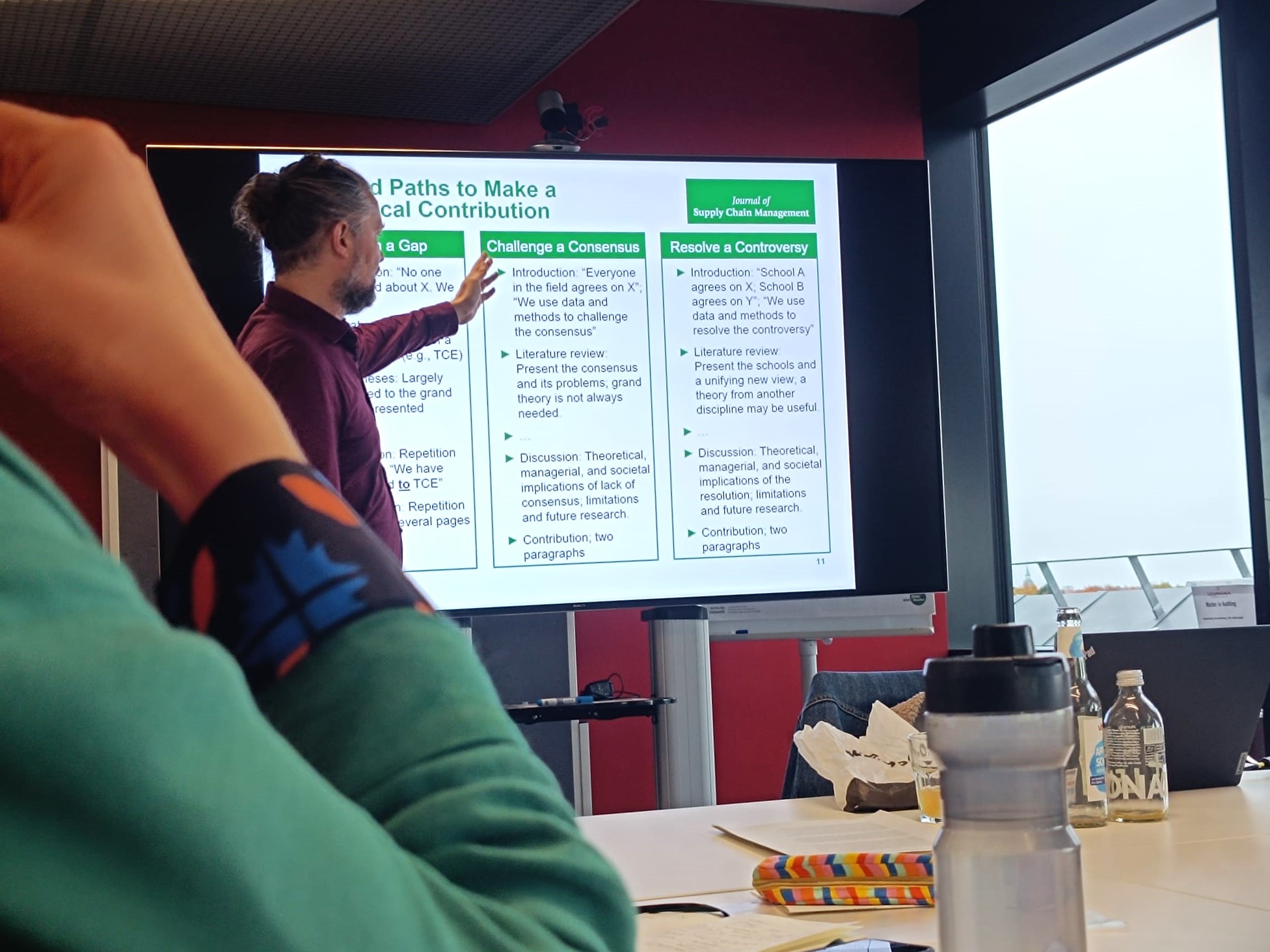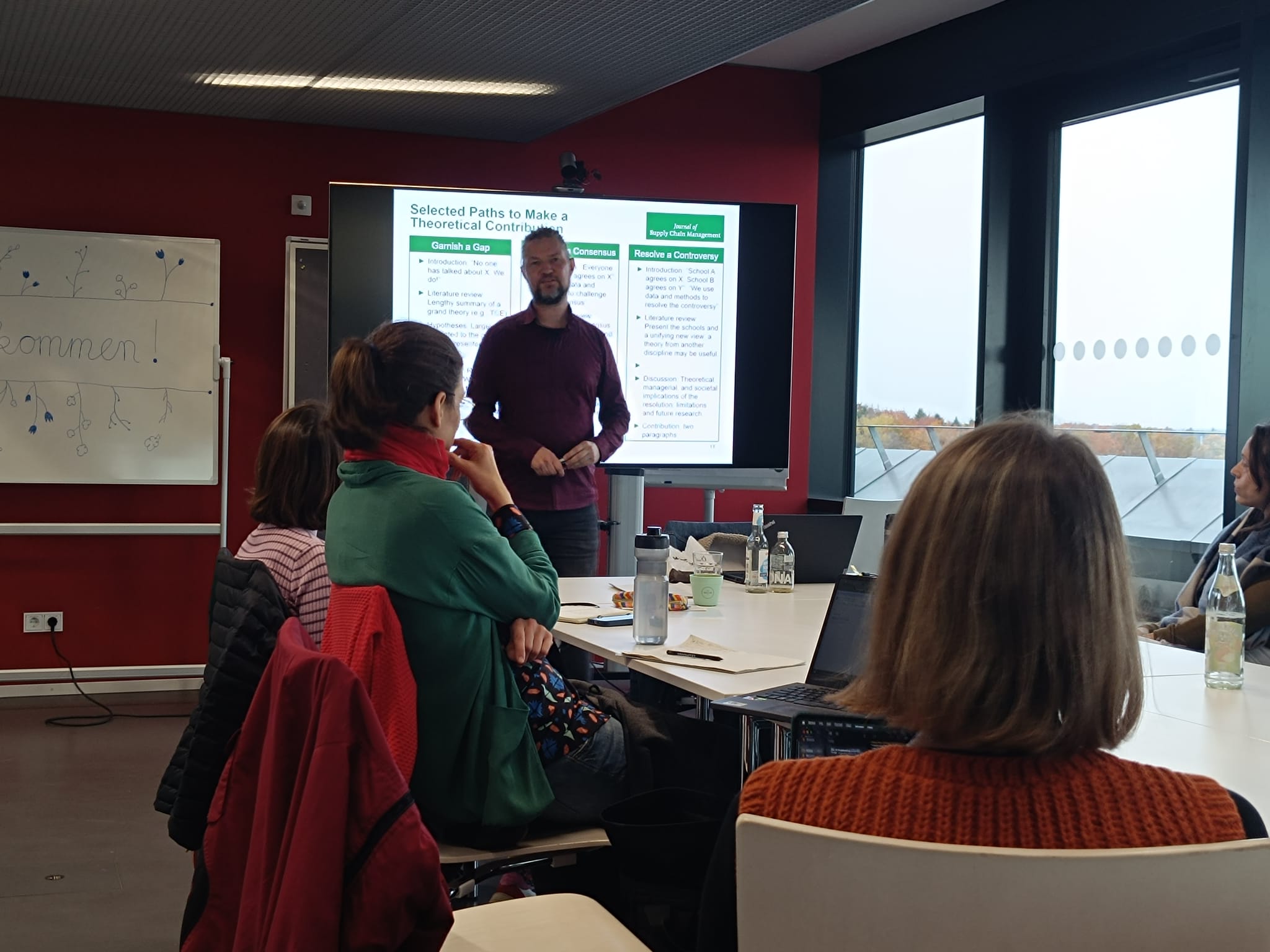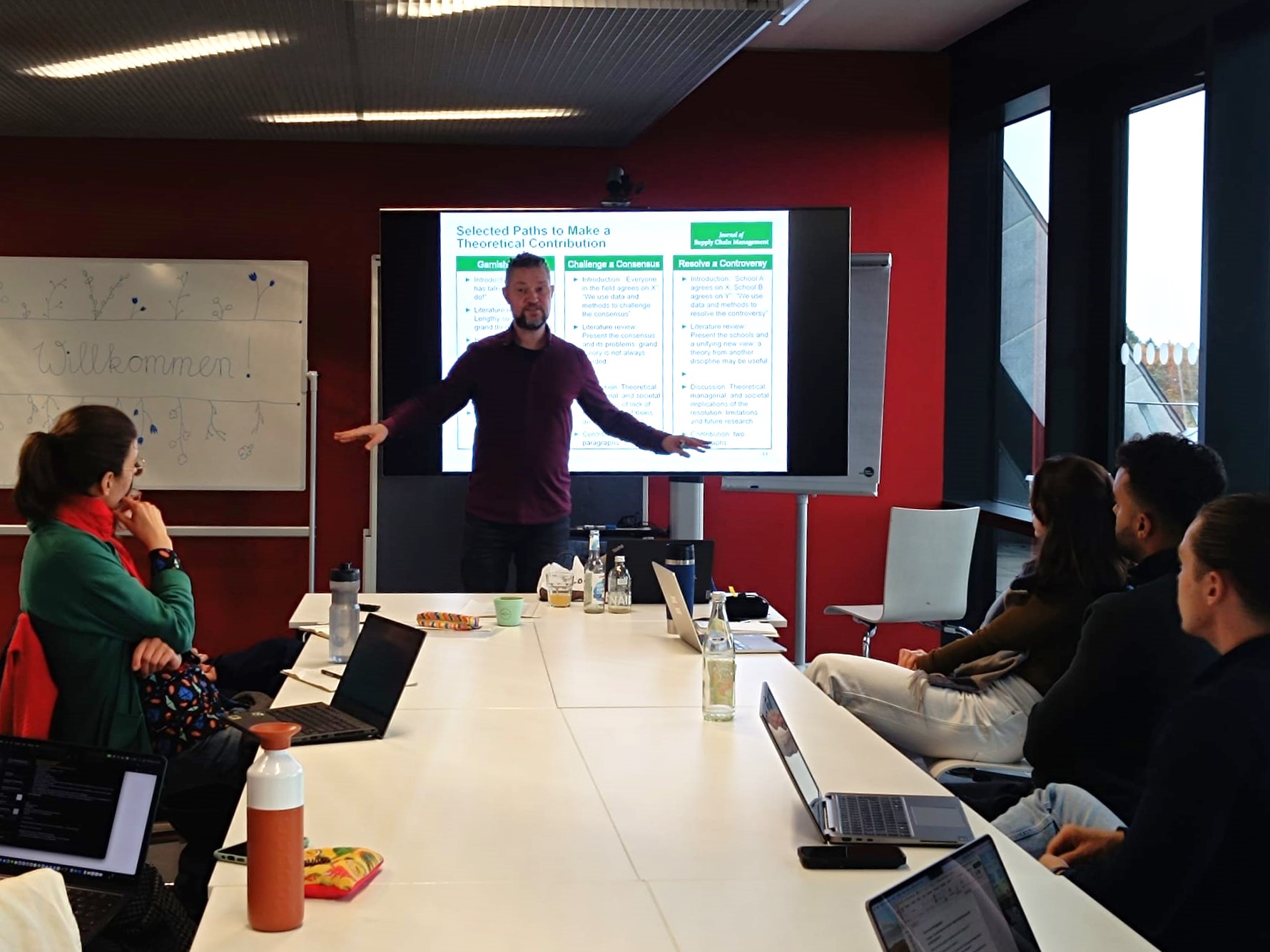
Looking Back: Workshop with Andreas Wieland on Publishing Interdisciplinary Research in Supply Chain Governance

On 3 November 2025, we hosted Prof. Dr. Andreas Wieland from Copenhagen Business School (CBS) for a workshop on Publishing Interdisciplinary Research on Supply Chain Governance. Wieland, Co-Editor-in-Chief of the Journal of Supply Chain Management (JSCM), offered an open and insightful look behind the scenes of top academic publishing—and what it takes to publish work that crosses disciplinary boundaries.
JSCM is one of the most respected journals in the field and stands out for its conceptual and interdisciplinary focus. It combines qualitative and quantitative approaches in equal measure and encourages authors to link their research to broader theoretical and societal questions. Unlike journals that focus mainly on operations or logistics processes in supply chain management, JSCM looks for research that connects supply chains to broader theoretical and societal questions.
Each journal, he explained, has its own editorial culture and criteria, balancing different expectations about theory, data, and method. For early-career researchers, this means not only learning how to write a paper, but also how to position one’s work in this landscape: understanding what kind of theory or contribution a journal values, and how one’s underlying approach fits with that. Wieland encouraged participants to see this as a learning process—one that helps clarify their own voice as researchers. Some journals privilege theory development, others prioritize data; some value positivist precision, others interpretive or historical depth. As a top-ranked journal (ABS 4, Impact Factor: 9.9 (rank 14 in management)) with an acceptance rate of around 4%, JSCM places greater emphasis on original theoretical contributions than on methodological perfection. Wieland emphasized that the strongest papers are not those with the most complex data, but those that “solve a puzzle,” “challenge a consensus,” or “resolve a controversy.” What distinguishes strong work, he noted, is a clear idea and a genuine sense of curiosity behind it.
He also spoke about the challenges researchers face when their work crosses disciplinary lines or takes a critical stance. Journals operate within specific traditions and political climates, which sometimes influence what kind of work gets published—and where. Navigating these differences between disciplines and approaches, he noted, is simply part of doing global, interdisciplinary research.
Looking at the journal landscape in SCM research, he highlights how each journal has its own culture and expectations—some focus more on theory, others on data or method. For early-career researchers, the challenge is not only to write a good paper but to find the right home for their work and understand what kind of contribution a journal values. He also spoke about rankings and reputation systems such as ABS or VHB. While these lists can be useful for orientation or when writing systematic reviews, they should not define a researcher’s sense of worth or direction. What counts as a “top journal” often depends on discipline and national context, and the real goal is to contribute meaningfully to the conversations that matter most to one’s field.
Participants discussed how transdisciplinary or critical journals often struggle for recognition because they sit outside established categories. Publication systems are rarely bottom-up. Still, Wieland encouraged researchers to stay strategic but grounded: it’s good to aim for a “pet paper” in a top journal, but even more important is to know what kind of research culture you want to be part of. In our research consortium where scholars study the governance of global value chains from an interdisciplinary perspective this message struck a chord. Wieland’s insights on journal politics, editorial cultures, and balancing theory with impact closely reflected the challenges and goals our consortium tackles in its research.
Wieland also offered a look into how the editorial process works: from initial screening to the triple-blind review system that JSCM follows. Editors and reviewers, he said, act as both gardeners and gatekeepers—supporting promising ideas while maintaining academic standards. Good reviewing should be “like Berghain”—hard to get into, but once you’re in, it’s a great experience. He also acknowledged concerns about bias and favoritism in publishing. While no system is perfect, he noted that openness, transparency, and careful reviewing help maintain trust.
Beyond practical advice, Wieland invited participants to think more deeply about their motivation for doing research. Why do we write theory? What do we hope to contribute? He emphasized that theory is never neutral—it reflects what scholars believe matters in the world. Instead of seeing theory as abstract, he suggested viewing it as a communication tool—a way of connecting empirical work to broader questions and ideas. He highlighted the importance of ensuring that research methods are consistent with the study’s assumptions and level of complexity, so that what you claim to know matches how you investigate it. One participant also further noted the value of writing more modestly and clearly.
Overall, he encouraged theoretical curiosity—the desire to explore puzzles, tackle complexity, and develop ideas that go beyond simple description. Theories, he noted, should not just explain but also offer new perspectives. Publishing isn’t just about metrics or prestige; it’s about developing ideas, asking important questions, and contributing to the field — this approach mirrors the interdisciplinary, critical work of our research cluster.
text & photos: Christopher Venzky-Stalling
Wann & Wo
Leuphana University Lüneburg



